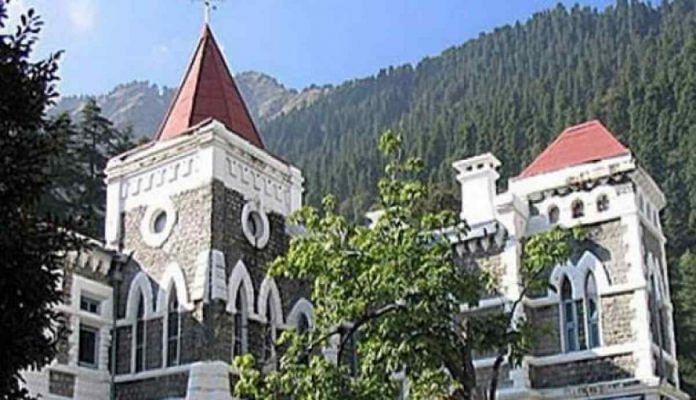New Delhi: In a significant judgment upholding gender equality, the Uttarakhand High Court Thursday held that a ‘married daughter’ should be considered for the government job of her deceased father, and that she should fall within the definition of her parents’ ‘family’, just like a ‘married son’.
A bench comprising Chief Justice Ramesh Ranganathan, justices Lok Pal Singh and R.C. Khulbe observed that both a “married son” and a “married daughter” who are dependent on a father who works as a government servant but dies before his retirement, would be equally considered for the job on compassionate grounds.
The high court further said not including “a married daughter” in the definition of her parents’ “family”, thereby denying her the opportunity of being considered for compassionate appointment, amounted to gender discrimination and violated her fundamental rights.
The court also observed that while considering the criteria for compassionate appointments, it was difficult to accept the submission that “dependent married sons” are the norm and “dependent married daughters” are an exception.
Also read: Must stop when Hon’ble judges walk past: Allahabad High Court diktat for office bearers
‘Ignores present-day realities’
“The classification of a family under the 1974 Rules and the 1975 Regulations, as excluding married daughters, is based on the premise that, on her marriage, a daughter ceases to depend on her father and is, thereafter, dependent on her husband and her in-laws,” the high court said in its judgment.
The HC said such a premise ignored “the realities of present-day society where the numbers of destitute women abandoned by their husbands, or those who are divorced and are not even provided maintenance, are on the rise”.
Referring to statistics, the court observed: “The policy, based on the marriage of a daughter proving fatal for appointment on compassionate grounds, proceeds in oblivion of husbands harassing and torturing wives in ample measure, and thereby creating a situation for the wives to withdraw from the matrimonial household, and return to her paternal home, usually the first refuge of one in distress.
“Such situations are not uncommon in Indian conditions. These destitute women invariably come back to their parental home, and are supported by their parents both financially and otherwise. This premise of the state government, in making the rule/regulation, is completely flawed and ignores present-day social realities,” the court held.
The HC also pointed out that if the test to be eligible for compassionate appointment was that of dependence, then there was no justification in excluding a “married daughter” from being considered for the government job of her deceased father.
Gender discrimination
In its verdict, the high court observed that the exclusion of a “dependent married daughter” while including a “dependent married son” in the definition of their parents’ “family” amounted to gender discrimination.
“Just as a son continues to be the son of the deceased government servant, both before and after marriage, so does the daughter. The mere fact that she is married does not result in her ceasing to be the daughter of the deceased government servant,” the court held.
“Just as sons (married or unmarried) or daughters (widowed or unmarried) may also have an independent means of livelihood, and would therefore not be eligible to be considered for compassionate appointment as they are not dependent on the deceased government servant, likewise a married daughter, who is not dependent on the deceased, would also be ineligible for being considered for compassionate appointment,” the court remarked.
Also read: Bombay high court allows aborting pregnancies older than 20 weeks without court permission




I am 40 year of age and married , my brother work under die in harness does the law allow me to ask some share from his salary.